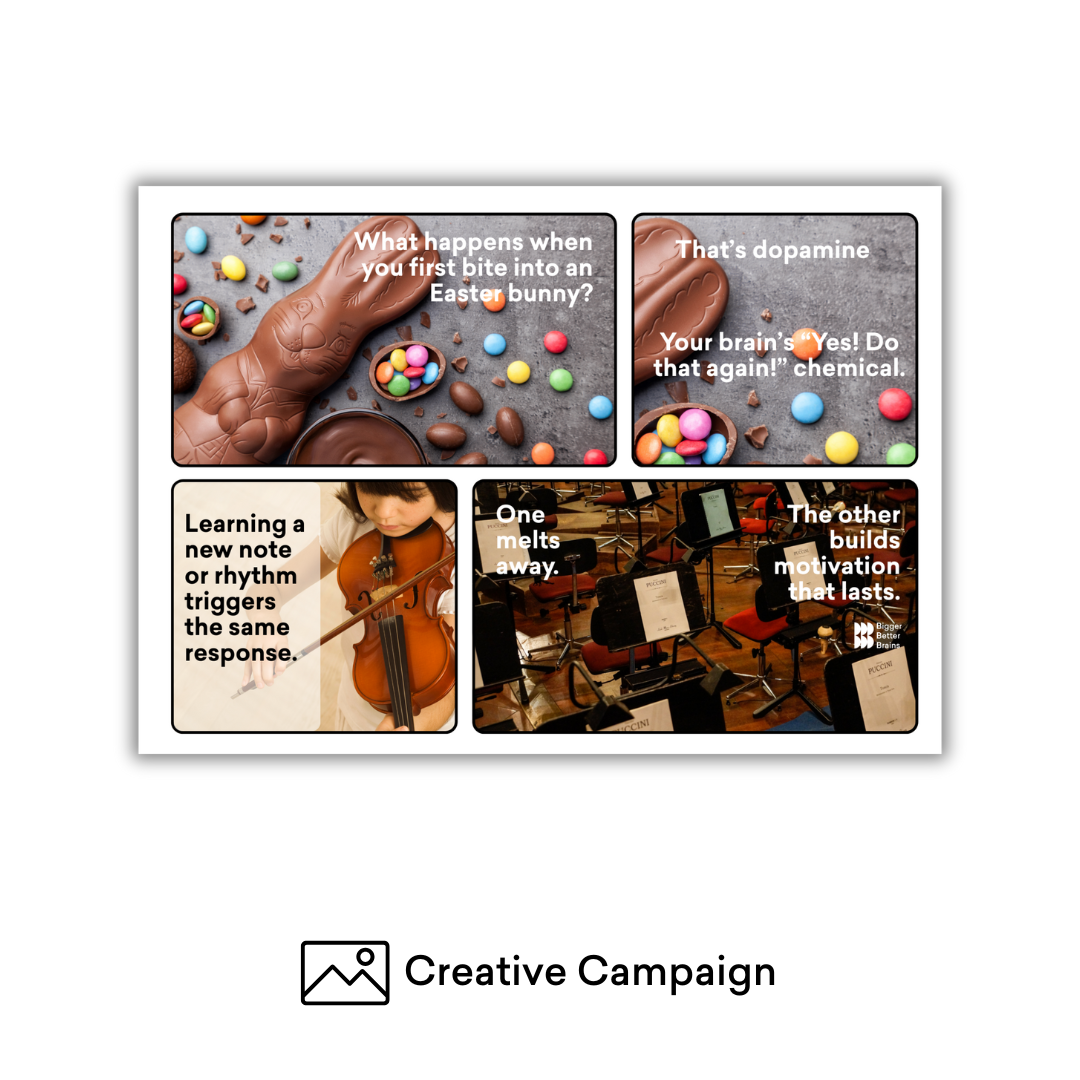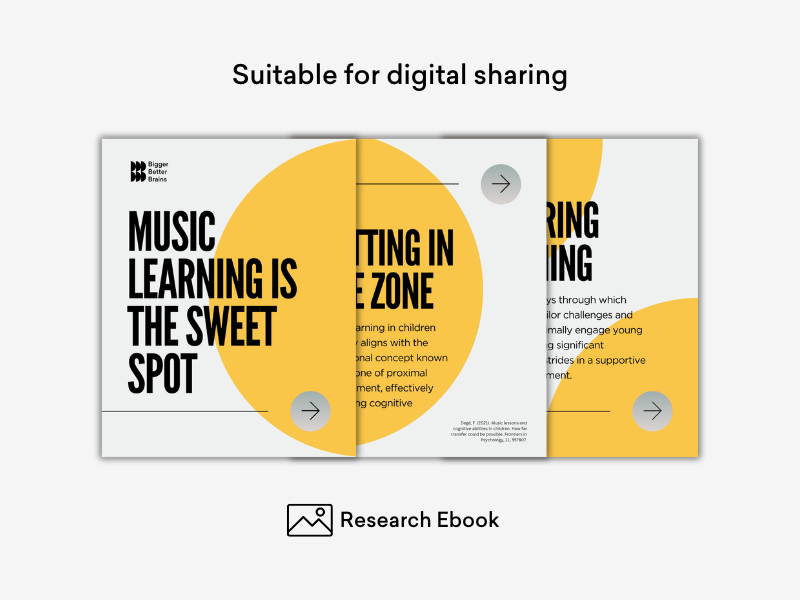Inhibitory Control - BBBX
BBBX stands for BBB Explained. These videos are designed to focus on a single area of learning that music learning can enhance. We want to help parents, students and staff to better understand the impacts of music learning on brain development, so feel free to share these short videos through your social media feeds and emails.
Learn how music learning helps to develop behaviours focused on helping and sharing with others.
Citations
Zuk, J., Benjamin, C., Kenyon, A., & Gaab, N. (2014). Behavioral and neural correlates of executive functioning in musicians and non-musicians. PLOS ONE, 9(6), e99868.
Gibson, C., Folley, B. S., & Park, S. (2009). Enhanced divergent thinking and creativity in musicians: A behavioral and near-infrared spectroscopy study. Brain and Cognition, 69(1), 162–169.
Hallam, S. (2016, June). The impact of actively making music on the intellectual, social and personal development of children and young people: A summary. In Voices: A World Forum for Music Therapy (Vol. 16, No. 2).
Schellenberg, E. G., Corrigall, K. A., Dys, S. P., & Malti, T. (2015). Group music training and children’s prosocial skills. PLOS ONE, 10(10), e0141449.
Silverman, M. J. (2008). Nonverbal communication, music therapy, and autism: A review of literature and case example. Journal of Creativity in Mental Health, 3(1), 3–19.
Davidson, J. W., & Good, J. M. (2002). Social and musical co-ordination between members of a string quartet: An exploratory study. Psychology of music, 30(2), 186-201.
Cross, I., Laurence, F., & Rabinowitch, T. C. (2012). Empathy and creativity in group musical practices. In G. McPherson & G. Welch (Eds) The Oxford Handbook of Music Education (pp337-353) Oxford: Oxford University Press.














